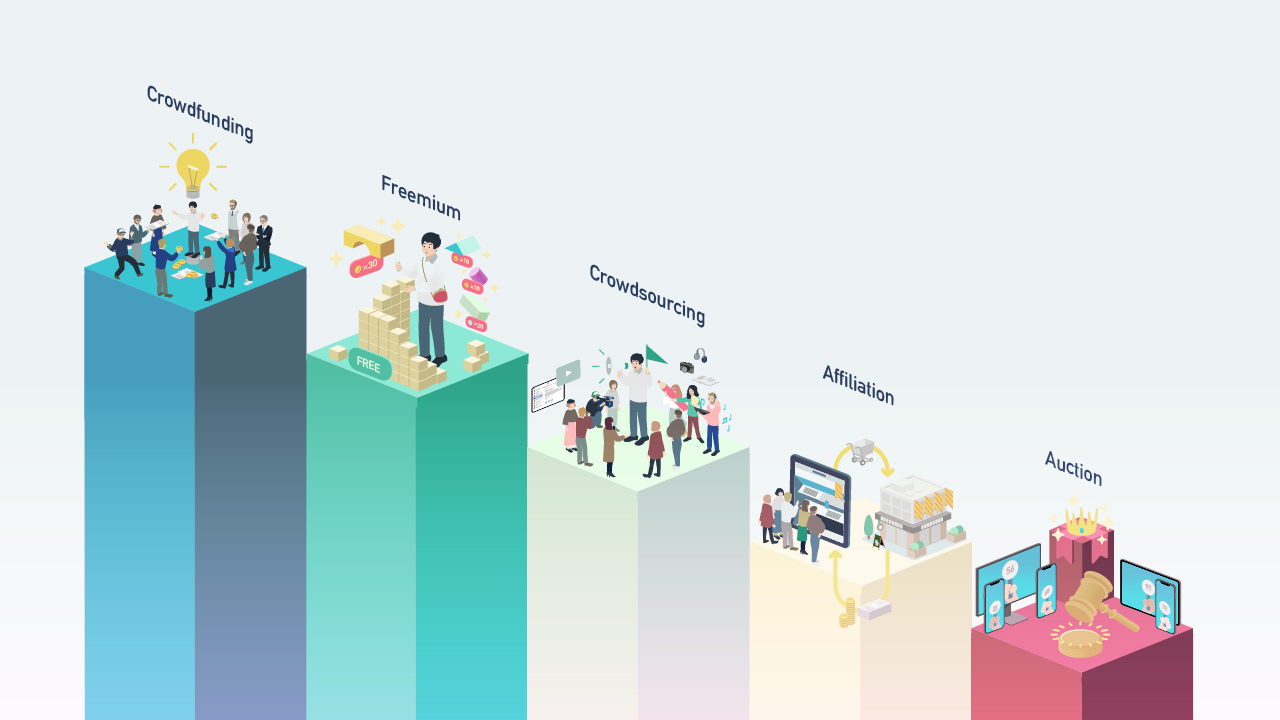今日のボヤキ 9/8
「リサイクル」と聞くとどのような印象を受けるでしょうか。
個人的にはリサイクルする費用とその再生されたものとの価値に見合っているのかと疑問に思うことが多々あります。
ペットボトルや再生紙が代表格にはなるでしょうが、それ以外は果たしてリサイクルする必要があるのでしょうか。
そこでリサイクル品を”価値あるもの”として復活させる活動の紹介です。

世界的に脱プラへの動きが高まる中、プラスチックに代わるサステナブルな新素材として注目を集めている「PAPLUS®(パプラス)」。原料は紙と、トウモロコシやサトウキビ搾汁のデンプンを発酵して得られる乳酸を主成分とするポリ乳酸で、植物由来成分99%以上という、とことん地球に優しい素材です。
クラフト紙のような見た目に、硬質のプラスチックのような感触をもつタンブラー。実は原材料の99%以上が植物由来という、注目の新素材が使われています。その名も「PAPLUS®(パプラス)」。廃棄される紙を主原料にしたプラスチックフリー素材で、しかも再製品化も可能という、ひとつでいくつもの課題解決にアプローチしている、超優良な環境配慮型素材なのです。
なぜ、「紙」と「プラスチック」なのか。開発を手がけた株式会社カミーノの深澤幸一郎さんは、「まだ使える紙が大量に捨てられるのがもったいなくて。ケチなもんですから」と笑います。
「もともと、私たちの会社は、紙のリサイクルのプロデュースからスタートしたんです。きっかけは、広島の千羽鶴。広島には、平和への祈りや戦争への慰霊の想いが込められた折り鶴が、年間1千万羽、重さにして10トンもの量で届くのですが、大切なものだからこそ、その扱いに市が苦慮している実態があって。そこで、市民からアイデアを募って、リサイクルしようという流れになったんです。
「リサイクル素材、って聞くと、それだけで“環境にいいもの”のように思いがちですが、本当はその先が重要なんです。製品を作ったとして、それが売れなければ、またゴミになるわけですよね? ゴミにお金かけてCO2出して、別のゴミを生み出しているだけ。そんな“ゴミの移動”になっているリサイクルのやり方では、ゴミは減らないじゃないか、と」
千羽鶴から転生したリサイクルペーパーに、ゴミにならない第二の人生を送らせたい。そこで生まれたのが、デザイン性の高い扇「FANO(ファーノ)」でした。
リサイクルによって元の形に戻して再使用するのも一つの手ですが、この例のように新たな形で新たな価値を持つものとして生まれ変わるのも良いと思います。
悪循環にならないように”捨てにくさ”というのもゴミを減らすためには必要な要素の1つなのではないでしょうか。
English edition
What is your impression when you hear the word "recycle?"
Personally, I often wonder if the cost of recycling is commensurate with the value of the recycled material.
Plastic bottles and recycled paper are probably the best examples, but is there really any need to recycle anything else?
Here is an introduction to an activity to revive recycled items as "valuable" items.
Amid the growing global movement away from plastic, PAPLUS® is attracting attention as a new sustainable material that can replace plastic. PAPLUS® is made from paper and polylactic acid, which is mainly lactic acid obtained by fermenting starch from corn and sugarcane juice, and is an eco-friendly material with a plant-derived content of over 99%.
The tumbler looks like kraft paper and feels like hard plastic. In fact, the tumbler is made of a remarkable new material in which more than 99% of the raw materials are plant-derived. It is called "PAPLUS®. It is a plastic-free material made mainly from discarded paper, and can be reprocessed.
Why "paper" and "plastic"? Mr. Koichiro Fukazawa of Camino Corporation, who was involved in the development of the product, laughs, "It's a waste to throw away so much paper that can still be used. I'm a cheapskate," he laughs.
Our company originally started out as a paper recycling producer. It all started with the 1,000 paper cranes in Hiroshima. Hiroshima receives 10 million paper cranes a year, weighing as much as 10 tons, filled with prayers for peace and memorials to the war dead, but because they are so important, the city was having a hard time dealing with them. The city was having a hard time dealing with them because they were so precious to the city.
When people hear the words "recycled materials," they tend to think of them as "environmentally friendly," but in reality, it is what happens after that that is important. If you make a product and it doesn't sell, it becomes garbage again, right? Spending money on garbage and emitting CO2 is just creating another kind of garbage. If we continue to recycle in such a way that we are "transferring trash," we will never reduce the amount of trash.
We wanted to give recycled paper, which was reincarnated from 1,000 paper cranes, a second life that would not be garbage. The result was "FANO," a fan with a high design quality.
It is one way to reuse recycled paper by returning it to its original form, but I think it is also good to give it a new form and new value, as in this example.
To avoid a vicious cycle, "difficulty in disposal" is one of the necessary elements to reduce waste.
ブクログ 46号
「あなたの過去を説明してください。」
そう問われると、あなたはどのように答えるのでしょうか。
順風満帆な人生の人もいれば、挫折ばかりで苦しい人もいるでしょう。
それらはあなたが今日まで歩いてきたプロセスというわけです。
これは何も人に限った話ではなく、毎日手にしているあらゆるものにもそのプロセスは存在するということです。
概要
完成品ではなく「制作過程」を売る!
〝良いモノ〟だけでは稼げない時代の新常識インターネットによって完成品はすぐコピーできるようになった。だから完成品で差別化するのは難しい。
そんな時代にはプロセスにこそ価値が出る。なぜならその人だけのこだわりや哲学が反映されたプロセスは誰にもコピーできないからだ。
完成品ではなく制作過程そのものを売る。
プロセスエコノミーはこれからを生きる全ての人の武器になる。
プロセスが商品にまで求めれらる時代になってきています。
例えば、受験や就職では基本的にあなたの過去を教えて下さいと言われ、それは歩んできたプロセスを聞かれているわけです。
この書籍で言う商品は学歴であったり、功績の部分であったりしますが、それらを持ち合わせる人は数多くいるわけです。
それも大事なのかもしれませんが、そこに至るまでの思考や努力を評価対象としているはずです。
だから良く聞かれる質問として、「あなたの挫折経験を教えて下さい。それをどのように克服・改善しましたか?」があります。それはこの先困難があったとしても、同じ会社のメンバーとしてやっていけるかを見られているということですね。
それらの背景が人からモノにまで範囲が拡大し、商品のバックグラウンドやメッセージ性までもを考慮して消費者は購買するようになっています。
その軸が太く根強いものであればあるほど会社として大きく成長していけるのかもしれません。
昨今は商品の制作過程ですら収益化する時代になっています。
”プロセス”は何事においても大切であるということを肝に銘じてただがむしゃらではなく、目的を明確化すれば応援してくれる人がいたり、一緒に取り組んでくれる人たちが出来たりするのかもしれません。
English edition
Describe your past."
When asked this question, how would you answer?
Some people's lives have been smooth sailing, while others have been full of setbacks and hardships.
These are the processes you have gone through to get to where you are today.
This is not limited to people, but also to everything you hold in your hands every day.
Overview
Sell the "production process" instead of the finished product!
The new normal in an age when "good products" alone are not enough to make money
The Internet has made it possible to quickly copy finished products. Therefore, it is difficult to differentiate yourself with a finished product.
In such an era, it is the process that is valuable. This is because no one can copy a process that reflects a person's unique philosophy and passion.
Sell the process of creation itself, not the finished product.
The process economy is a weapon for all people living in the future.
We are living in an age in which the process is now demanded even for products.
For example, when you take an entrance exam or get a job, you are basically asked to tell us about your past, which means that you are being asked about the process you have gone through.
The commodity in this book can be your education or your achievements, but there are many people who have those things going for them.
That may be important, but the thought and effort that went into getting there should be the subject of evaluation.
That is why we are often asked the question, "Tell us about a frustrating experience you had. How did you overcome or improve upon them?" is one of the most common questions. This means that they are looking to see if we can work together as members of the same company even if there are difficulties in the future.
These backgrounds have expanded in scope from people to goods, and consumers are now purchasing products based on the background and even the message of the product.
The thicker and deeper-rooted that axis is, the greater the company may be able to grow as a company.
Nowadays, even the production process of a product can be monetized.
If you keep in mind that "process" is important in everything you do, and clarify your objectives, you may find people who will support you and work with you.
